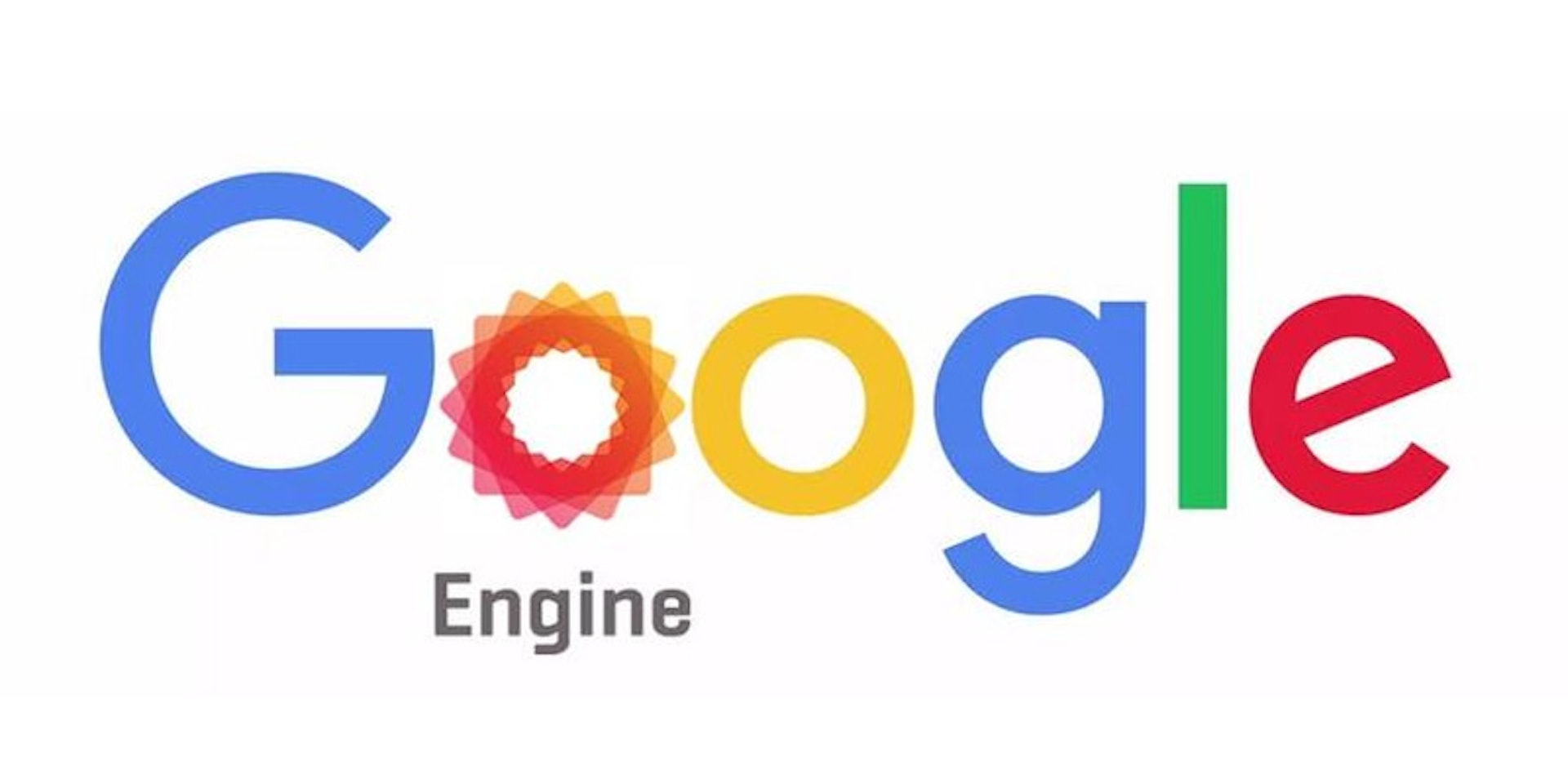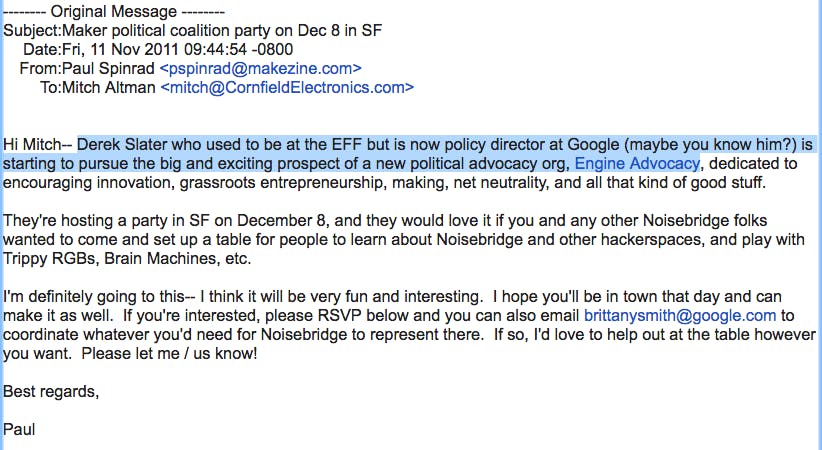Click here to download the full report »
Engine says it’s the voice of startups in government. It serves Google’s corporate interests instead
Engine is a San Francisco-based nonprofit that claims to be the “voice of startups in government.” The group, which also has a lobbying arm called Engine Advocacy, told reporters at its launch in 2011 that it would advocate for startups as a counterweight to lobbying by corporate heavyweights like Google, Verizon and Microsoft.
Evidence suggests, however, that Engine is little more than a creation of the biggest lobbying giant of them all: Google, and its corporate parent, Alphabet Inc.
Messages from the time indicate that Engine was originally created by a Google employee working out of its public policy office in Mountain View, Calif., in conjunction with several former employees of the company. The Google policy manager, Derek Slater, was named as the person organizing Engine by those planning to attend the launch in 2011. The person listed to RSVP for Engine’s launch party was also an employee in Google’s public policy office.
Contemporaneous message suggests Google’s public policy manager set up Engine. The invitation lists another Google policy employee as the contact to RSVP for the launch party.
Slater then actively recruited members for the group and promoted its campaigns on social media. Among the very first people to follow Engine’s new Twitter account when it launched in 2011: three Google public policy executives—Slater, Adam Kovacevich and Charlie Hale—and a policy consultant working for the company.
Google has disclosed funding the group every year since 2013, though neither say how much of Engine’s budget is covered by the company, either directly or through other groups Google finances.
In practice, Engine has led the charge on a number of policy fights that have benefitted Google—some of which Google did not want to wage in its own name. Earlier this year Google faced a wave of criticism for opposing a bill that would crack down on sex trafficking websites. While Google’s direct opposition was muted, Engine mounted a full-throated effort to oppose the bill. Google’s lobbyists then touted Engine’s statements as a reason to kill the measure.
During the past seven years, Engine has also gone to bat for Google on a number of other policy issues of importance to the company’s bottom line.
At a time when Google was facing threats from rivals wielding large patent troves, Engine backed its calls for patent reform. When Congress seemed poised to pass anti-piracy bills that threatened Google’s business model, Engine helped lead the charge that ultimately killed the measures.
Engine has also fought for a number of other Google priorities, including more visas for high-skilled immigrants, radio spectrum reform and stronger net neutrality rules—all key public policy issues for Google. By contrast, Engine has remained silent on issues important to startups, such as access to the platforms that technology giants control, and antitrust.
Coverage of Engine’s launch emphasized its role as a counterweight to lobbying by corporate heavyweights like Google and Microsoft. But evidence suggests it was midwifed and bankrolled by Google’s lobbyists.
Of course, other industries have used trade associations to lobby on their behalf, in part to distance their brand names from unpopular policy positions. Google has followed that path by funding trade groups, like the Internet Association, to advance its agenda.
But Google’s creation and financing of Engine is different. Instead of joining a group that represents its interests and those of its peers, Google has used Engine to hide behind startups at a time when the company has little or nothing left in common with that group. The interests of the proverbial “guy-in-a-garage” long ago diverged from those of the tech giants, to the extent that they are now more likely at odds with each other.
“The best start-ups keep being scooped up by the big guys (see Instagram and WhatsApp, owned by Facebook),” noted Farhad Manjoo in The New York Times. “Those that escape face merciless, sometimes unfair competition (their innovations copied, their projects litigated against). And even when the start-ups succeed, the Five still win.”






